- Home
- Rick Mofina
Blood of Others Page 2
Blood of Others Read online
Page 2
A bouquet of white silk roses affixed to her hands, the bride was standing, shoulders secured to the steel rods of two heavy metal bases, head bowed, her bare feet in the pool of dark, blackish red, widening on the hardwood floor of the display case.
Dear God! That’s not a mannequin! It’s a woman! She’s --
Zegler covering her mouth.
The droplets splashing like red tears.
Oh, dear God!
Sirens screaming. The tolling bells. Cable cars laden with office workers. The graceful lettering of the boutique’s sign over the blood-soaked bride promising to...MAKE IT A DAY YOU WILL REMEMBER FOREVER & EVER.
THREE
As usual Olivia Grant’s commute began by opening a paperback on her lap after finding a seat for the ride down Market to her job near Union Square.
But today she couldn’t concentrate on her book.
Olivia was drawn to the young mother and father across the aisle. Early thirties. Happy baby strapped snugly to Dad’s chest. The parents looked exhausted but their faces radiated absolute joy. The bond with their baby. Pure love.
It overwhelmed Olivia, awakening anxieties that had been stirring inside her for months. Years. She would never have what the woman across the aisle from her had. Olivia was alone. Utterly alone.
Her eyes glistened, blinking at the truth as she tried to return to the sanctuary of fiction. It was futile.
Time to face reality, girl.
You ache to have someone in your life but do nothing about it, clinging to the schoolgirl hope someone perfect is just going to walk into your world and rescue you. How many years have you been dreaming that dream?
Soon she would turn thirty-five. Thirty-six was next. Forty was looming. Birthdays were blurring by, accelerating her trip to middle-aged spinsterhood. Not the life she had envisioned. In high school Olivia had fantasized about how sweet it would be with her husband, her beautiful children, and their perfect home.
But boys seldom approached Olivia. She was painfully shy. Terrified of rejection. She had had few dates. In college it was the same story. She had expected to find her future mate there, but it didn’t work out that way. Olivia had rarely dated in college. She had supported herself working part-time at Caselli’s Gift Shop downtown, never once thinking some fifteen years would pass and she would still be there.
What a sad life. Stop it, Olivia. You’re just a little bothered about nearing thirty-five and still being single. Nothing wrong with that. No big deal. Everyone finds their own path. Besides, there is always tomorrow and there is always hope.
Sounded like one of the greeting cards at the store, Olivia rebuked herself, caressing her tiny gold heart. She had bought it for her thirty-second birthday, a comfort gift to soften the letdown of her last date.
He was a lawyer who came to the shop occasionally. One day he asked her out. It was nice. He brought her a white carnation, they had dinner, walked along Marina Green. But Olivia had been nervous. So self-conscious she barely spoke. When it ended, he thanked her, then kissed her cheek. She never heard from him again. She placed the carnation in the pages of a hardcover romance novel she kept on a shelf in her bedroom. Some nights she would look at it and touch its dried, dead petals, then the cheek he had kissed.
That was three years ago.
Olivia got off at Union Square and walked her workday route. It would take her by the bridal boutique and its enchanting storefront brides displaying the prettiest gowns. Surely that would revive her belief that dreams can come true. That maybe, just maybe, she would find somebody to love and live happily, Forever & Ever….
The yelp of a siren was the first indication something was wrong. She saw the revolving red lights, police cars, TV news crews, a huge tarpaulin covering the display window. Emergency radios chattering, police directing downtown workers to walk around the scene.
One man shouted: “Yo, Officer, I hear somebody got herself killed in there. Whatsup, man?”
“Move it along, please. Move it along.”
Killed? Olivia cast a worried look in the direction of the shop. A woman dead in Forever & Ever? A firm hand touched her shoulder. “Miss, please keep moving.”
Olivia hurried to Caselli’s. The tiny gift shop was shoehorned between a grand café and large boutique on Maiden Lane.
Her keys jingled as she unlocked the front door. The transom bells rang loudly as she went to the back, switched off the alarm, put her lunch in the small refrigerator, hung up her jacket, and went through her morning opening routine.
She prepared the cash register, checked the credit and debit card machines, phone messages, mail, the fax machine, the computer, and the store’s Web site for e-mailed orders.
Before he died, Mr. Caselli set up an automated on-line service to provide quick delivery of small gifts, flowers, and cards for busy downtown customers at risk of forgetting important occasions. Caselli’s Internet service and the walk-in lunch-hour traffic kept the gift shop afloat. The store had a vast selection of greeting cards -- announcements, birthday, graduation, showers, wedding, anniversary, get-well, forgiveness, sympathy, congratulations, all the big days, Valentine’s, Mother’s, Father’s, and many others.
Over the years Olivia had helped customers mark milestones in their lives. It was funny that in the region many regarded as the world capital of cyberspace, many people still gave traditional greeting cards.
The lunchtime rush was winding down when the doorbells jingled and an older heavyset woman, white hair in a high, tight bun, toddled in. Seventy-one-year-old Mrs. Caselli. As always, she was there to relieve Olivia for lunch.
“How is it today?” Even though she had come to America as a young girl, Mrs. Caselli had not lost her accent entirely.
Olivia checked the day’s list on the store’s computer. “Busy. Thirty-two orders dispatched.”
Mrs. Caselli placed a hand against her face, stared into the street. “Isn’t it just horrible about the bride store? The TV news is saying a woman was murdered.”
“Yes. It’s awful. The customers were talking about it.”
“Such a horrible thing in my beautiful city. I’m going to pray.”
“Don’t worry.”
“You’re not frightened, Olivia? It’s so close.”
“I guess. I don’t know. A lot of other things frighten me. I’d like to know more about her, about what happened.”
“Maybe you should close early today. Make me feel a little better. One hour earlier, please?”
“Sure. But don’t worry.” Olivia patted Mrs. Caselli’s hand, then finished on the computer and got ready.
The older woman smiled, noticing Olivia’s outfit. A cream-colored gabardine straight skirt with slash pockets, a navy knit print top with elaborate designs and a scoop neck.
“Nice clothes. Are they new?”
“A weekend sale at JC Penney.” Olivia grabbed her lunch and jacket from the back room. “See you in an hour.”
Olivia headed to Union Square, missing how the old woman used to optimistically ask if she was “meeting somebody” for lunch. But Mrs. Caselli’s motherly concern about her marital status had faded when Mr. Caselli died. Unlike his wife, the old guy had been blunt. His big eyes had crinkled at the corners when he talked to Olivia about her not having any boyfriends.
“Life is too short to be eating by yourself from a paper bag with only the birds for company. A pretty girl like you should jump into life. Don’t be so shy all the time. Don’t be afraid of heartbreak or two. Olivia, that is how you know you are alive. Better to have loved and lost…” A smile rose under his thick white moustache. Two days later he had a massive coronary.
Mr. Caselli was right. She was not participating in life. She was observing it from a safe distance where nothing could hurt her.
So why was she in pain?
How many times at the end of the day had she spotted women cradling flowers, or toting a Caselli’s bag containing a card she had selected, a gift she had suggested, and wrappe
d. She pictured those women, hurrying home to their children, their husbands, boyfriends, or life partners, for dinner, a movie, or to simply talk.
Every day Olivia helped strangers find the right gesture for important moments in their lives but could do nothing to help herself. She had devoured countless books and articles about not needing a man to define herself, nor a career, about her biological clock; had studied advice on overcoming dating paralysis, the twin curses of shyness and low self-esteem. She had gone to a dating service but backed out.
She got a makeover once. The beautician, a gay man, had looked over her five-foot four-inch, one-hundred-twenty pound frame, then her face, and whistled. “Look at you. High cheek bones, natural tones, classic features. Hazel eyes. A hetero heartbreaker, sweetie. Just keep that hair out of your eyes and smile more.” At home Olivia had stared at herself. Who is that? She had scowled, then scrubbed off the makeup, returned her shoulder-length auburn hair to her side part. She could hide there. It was safe.
Olivia sat on a bench in Union Square, chewing her egg-salad sandwich, gazing into her novel, then at the Corinthian column that had survived the 1906 earthquake. Long ago she had come to Caselli’s a painfully shy and lonely college girl. A lifetime later, here she was, an older, lonelier woman.
Was this it? Was this all there was to her life? What was the point?
A cool breeze brushed Olivia’s face turning her thoughts to the bridal shop and the dead woman. Murdered. Wasn’t it strange how that woman had died where she had come to plan the rest of her life?
FOUR
“Dad?”
Tom Reed was not awake.
“Dad?”
A small hand nudged Reed.
“Dad?”
“I’m sleeping, Zach.”
Reed groaned into his pillow, head hurting, throat parched. After work last night at the San Francisco Star, he had joined the usual gang for a few. Stayed late because he was off today and now his ten-year-old boy was shaking him.
“Son, get your mother. Please.”
“Mom went to Los Angeles early this morning, remember?”
Los Angeles? A vague memory of Ann in bed telling him something about an unexpected early meeting with suppliers as he had wrestled out of his clothes in the dark. Then she had smelled the beer, rolling to him, voice like ice. “Tom, you promised to stop this.”
He had been snoring about then.
Well, at least he was off today. Pulling his sheets tighter, enjoying the whole bed, hearing Zach wretch in another room, then return.
“Dad, I don’t feel good. I puked.”
Reed thought of the mess he’d have to clean.
“Where?”
“Toilet. Maybe I better see the doctor.”
“Come here.” Grunting, Reed sat up, slipped on his glasses. Zach’s eyes were bleary, he was pale, his skin was blotched with red patches. He was feverish. Those red patches. Reed had never seen anything like that on Zach. Not good. “I’ll call the doctor. Go get yourself dressed, brush your teeth.”
Who was Zach’s doctor? Shaw? Crenner?
Think about that later. He held his own head. How many beers did he have? The pain. Reed got himself to the bathroom, swallowed several headache pills, took a hot shower, and revisited his problem.
Brader. The Star’s new metro editor.
They had first encountered each other as fiercely competitive young reporters at the Associated Press in San Francisco. Reed had broken a story about Russian mobsters, had been short-listed for a Pulitzer, then accepted a job at the San Francisco Star as a crime reporter. It had angered Brader, who openly exaggerated his contribution to Reed’s mob story. The lanky ambitious Texan soon got a job on the cop beat at the Chronicle where he began ascending the management ladder. Several months ago, to Reed’s horror, Zeke Canter, his beloved editor, left the Star for USA Today. He was replaced by Brader, who was now in a position to bury Reed.
The day after Brader arrived to start his new job at the Star, he summoned Reed into his office, leaned back in his chair, and clasped his hands behind his head.
“Reed, your file has been shit for the longest damn time.”
It was true he hadn’t hit many out of the ballpark recently. “It’s a bit of a slump.”
“I don’t think so.”
Brader was three years older than Reed, a few inches taller. Married. Two daughters. Thick wavy salt-and-pepper hair, perfectly groomed. Wore expensive button-down shirts and silk ties. Liked to wink, show his white teeth, do a lot of shoulder touching whenever he talked to female staff.
“You’re stale, Reed. I saw that when I was at the Chronicle. You need a change.”
“I like the crime beat.”
“Lifestyles wants to expand coverage of whatever the hell it is they do. Here,” Brader looked at the section of that day’s edition, ‘Choosing the right name for your pet’. What do you think?”
“This a joke?”
“No joke.”
“I’m not interested.”
“Get interested.”
“Why?”
“Unless you show me something in the next few weeks, you’re going to Lifestyles.”
“What is this?”
“This damn newsroom needs recharging.”
“All these years and you can’t let it go. You still got a problem with me, that it?”
Leaning forward, Brader stared hard at Reed.
“I have a problem with your damn ego.”
“My ego?”
Reed made a point of surveying the wall behind Brader. Covered with full-page reproductions of Brader’s major stories, awards, and photographs of Brader with celebrities.
“Tom, I know you. I’ve looked damned hard at your stuff in the past year or so and frankly, you are overrated.”
“Is that what you thought at your old rag when I was killing you?”
Brader ignored him.
“These are the facts, Reed. You are not a relentless investigative reporter. You’re a mediocre reporter with the luck of a jackass. No room for a jackass on a Brader news team, sorry.”
“Clyde.”
Brader’s face tensed. Reed knew he hated his first name. “I’m not a threat to you and you know it.”
“Three weeks, Reed. If you don’t dig up a real damned story by then, you’re going to Lifestyles. Got it? Now get out.”
Reed was determined to prove Brader wrong, but his weeks of pumping cops and street contacts were futile, leaving him to seek sanctuary in war stories at bars with other reporters from the paper. Coming home drunk or late had become his routine. Again.
After the Keller nightmare, Reed had vowed to Ann that he would never return to his bad ways. This morning she let him know that he had and she issued a warning. “Better THINK about what you’re doing, Tom. You made promises to us.” That was how she ended the note she left him on his mirror about her trip and Zach’s schedule.
He threw on jeans, a T-shirt and a plaid L.L. Bean he left un-tucked and unbuttoned.
Maybe he should quit and finish his book. Ann’s children’s clothing stores were doing well. They could make it without his salary. But he couldn’t focus on his book and he would never surrender to Brader.
Reed searched the kitchen for Zach’s doctor’s number, ashamed he didn’t even know her name, or the name of Zach’s teacher. He would have to call the school.
“Zach.” He rifled through cupboards and drawers. “Where does Mom keep Doctor Cranson’s number?”
“It’s Crenshaw, Dad.” Zach was dressed and produced a small black notebook from a drawer Reed had searched. Zach’s face was still patched. He had combed his hair neatly. Smiled up at his dad. Zach loved being with him. Reed punched the number. “Thanks, son.” The line rang. “Is your teacher in this book? I better call your school.”
“Good morning. Pacific Sun Medical.”
“No school today, Dad.”
“No school?”
“Hello, Pacific Sun?”
&nb
sp; “Sorry. I’m calling for Dr. Cranson?”
“Who?”
“Crenshaw, Dad!”
“Sorry, Dr. Crenshaw. For Zachary Reed. He’s ten. A patient. I’d like to bring him in.”
Reed heard computer keys clicking. His head was throbbing.
“Dr. Crenshaw is booked solid today. In the hospital tomorrow. Next week --”
Ann would kill him if he didn’t get Zach to his doctor.
“That’s no good. We need to see the doctor.”
“What’s the problem?”
“Zach’s face is covered with red blotches, he’s vomited a few times.”
“We’re really booked, Mr. Reed. Maybe if you kept him in bed?”
“What’s your name?”
“Denise, but --”
“Thanks, Denise. We’re on our way.”
“Mr. Reed, I told you, we have no --”
“He’s sick, Denise.”
Annoyed, she sighed. “We might have an opening if you can get here in less than an hour.”
Thirty minutes later, Denise was warm to Zach when she led him to an examining room, but cold to Reed when she entered information into the office computer. The waiting room was crammed with mothers who were scowling at Reed as he flipped impatiently through dozens of old Time, Newsweek, and children’s magazines, worrying about Zach. On the drive, his face had improved and he said he felt better. What could it be? And why were these women so disgusted at him? Reed’s head ached from the previous night, lack of coffee. His stomach was yowling from skipping breakfast. He hadn’t shaved.
“Mr. Reed? The doctor will see you now,” Denise pointed her pen to Zach’s room, where he sat on an examining table, little sneakers dangling to the floor.

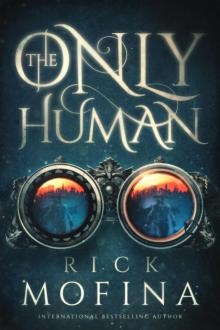 The Only Human
The Only Human Tom Reed Thriller Series
Tom Reed Thriller Series![[Tom Reed and Walt Sydowski 04.0] No Way Back Read online](http://i1.bookreadfree.com/05/tom_reed_and_walt_sydowski_04_0_no_way_back_preview.jpg) [Tom Reed and Walt Sydowski 04.0] No Way Back
[Tom Reed and Walt Sydowski 04.0] No Way Back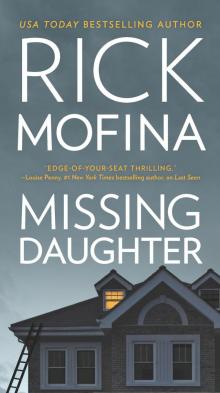 Missing Daughter
Missing Daughter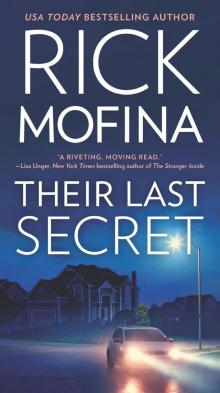 Their Last Secret
Their Last Secret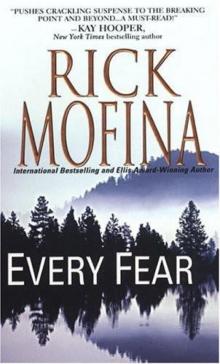 Jason Wade - 02 - Every Fear
Jason Wade - 02 - Every Fear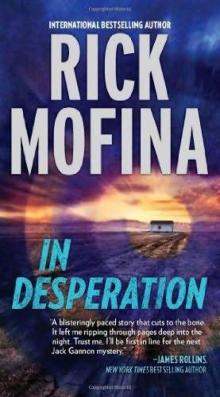 In Desperation
In Desperation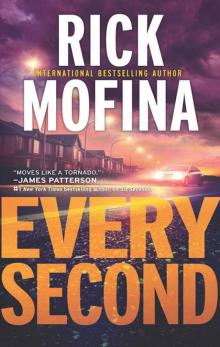 Every Second
Every Second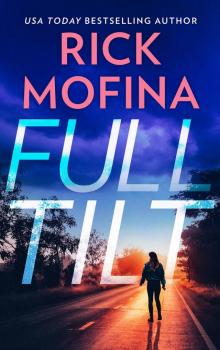 Full Tilt
Full Tilt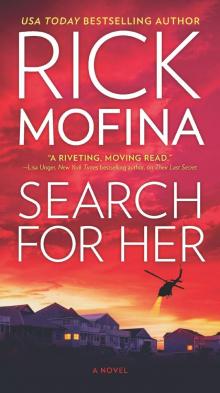 Search for Her
Search for Her The Last Pursuit
The Last Pursuit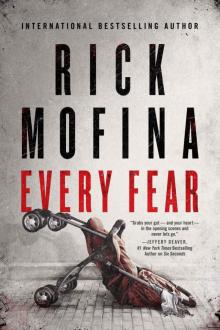 Every Fear
Every Fear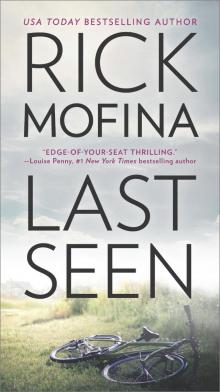 Last Seen
Last Seen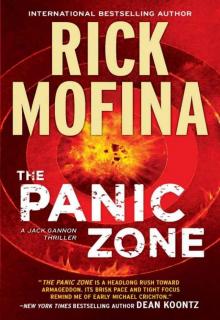 The Panic Zone
The Panic Zone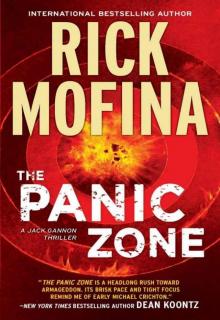 The Panic Zone jg-2
The Panic Zone jg-2 Free Fall
Free Fall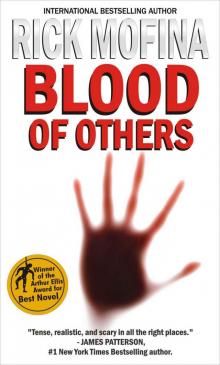 Blood of Others
Blood of Others![[Jason Wade 02.0] Every Fear Read online](http://i1.bookreadfree.com/i1/03/31/jason_wade_02_0_every_fear_preview.jpg) [Jason Wade 02.0] Every Fear
[Jason Wade 02.0] Every Fear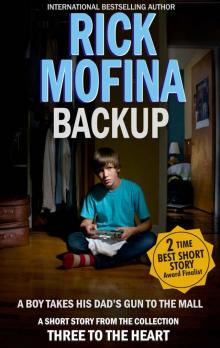 Backup
Backup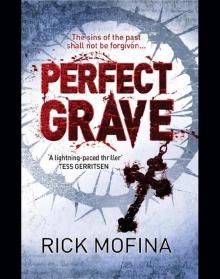 Perfect Grave
Perfect Grave Into the Dark
Into the Dark Whirlwind
Whirlwind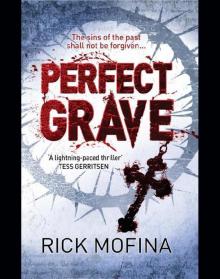 Perfect Grave jw-3
Perfect Grave jw-3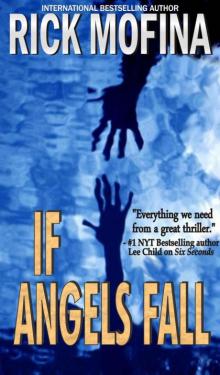 If Angels Fall (tom reed and walt sydowski)
If Angels Fall (tom reed and walt sydowski)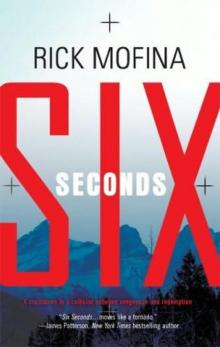 Six Seconds
Six Seconds If Angels Fall
If Angels Fall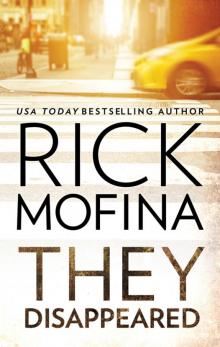 They Disappeared
They Disappeared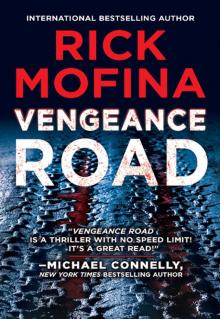 Vengeance Road
Vengeance Road Before Sunrise
Before Sunrise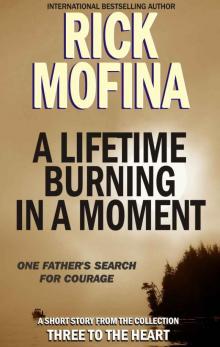 A Lifetime Burning in a Moment
A Lifetime Burning in a Moment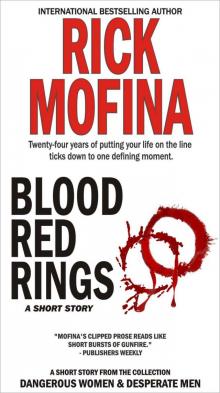 Blood Red Rings (Dangerous Women & Desperate Men)
Blood Red Rings (Dangerous Women & Desperate Men)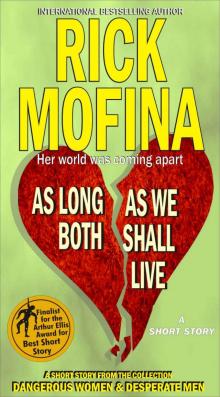 As Long As We Both Shall Live (Dangerous Women & Desperate Men)
As Long As We Both Shall Live (Dangerous Women & Desperate Men)![[Tom Reed and Walt Sydowski 01.0] If Angels Fall Read online](http://i1.bookreadfree.com/i2/04/12/tom_reed_and_walt_sydowski_01_0_if_angels_fall_preview.jpg) [Tom Reed and Walt Sydowski 01.0] If Angels Fall
[Tom Reed and Walt Sydowski 01.0] If Angels Fall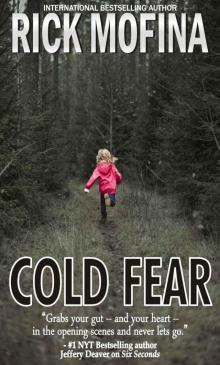 Cold Fear
Cold Fear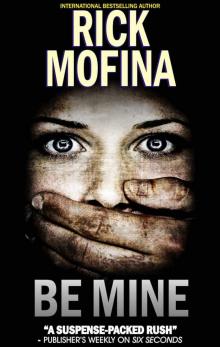 Be Mine
Be Mine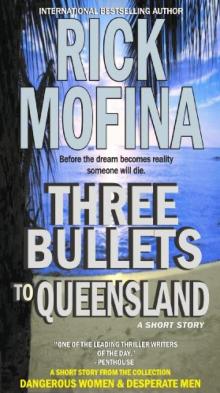 Three Bullets To Queensland
Three Bullets To Queensland